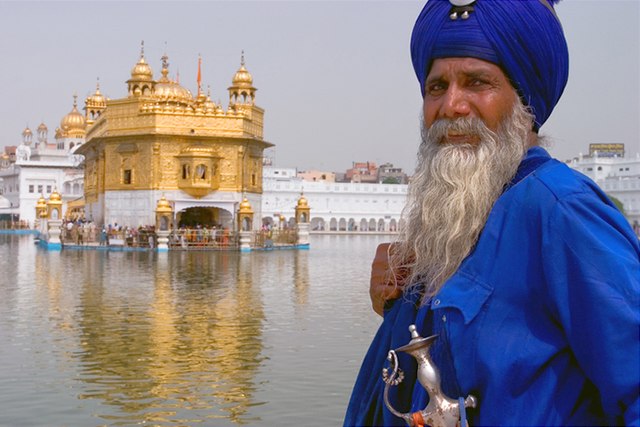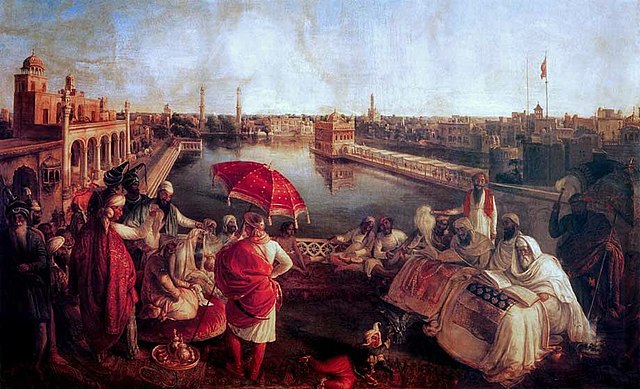Sikhism, also known as Sikhi, is an Indian religion and philosophy in particular for the Sikh ethnoreligious group that originated in the Punjab region of India around the end of the 15th century CE. The Sikh scriptures are written in the Gurumukhi script particular to Sikhs. It is one of the most recently founded major religious groups and among the largest in the world, with about 25–30 million adherents.
Darbar Sahib (Golden Temple) in Amritsar, Punjab, the holiest site of the Sikh religion
Tarn Taran Sahib – The World's Largest Sarovar (sacred pool)
A sketch made in 1844 by Emily Eden of the "Akalees or Immortals". Digitized by the Panjab Digital Library.
An Akali-Nihang Sikh Warrior at Harmandir Sahib, also called the Golden Temple
Sikhs are an ethnoreligious group who adhere to Sikhism, a religion that originated in the late 15th century in the Punjab region of the Indian subcontinent, based on the revelation of Guru Nanak. The term Sikh has its origin in the Sanskrit word śiṣya, meaning 'seeker', 'disciple' or 'student'. According to Article I of Chapter 1 of the Sikh Rehat Maryada, the definition of Sikh is: Any human being who faithfully believes in
One Immortal Being
Ten Gurus, from Guru Nanak Sahib to Guru Gobind Singh Sahib
The Guru Granth Sahib
The utterances and teachings of the ten Gurus and
The initiation, known as the Amrit Sanchar, bequeathed by the tenth Guru and who does not owe allegiance to any other religion, is a Sikh.
Maharaja Ranjit Singh listening to Guru Granth Sahib being recited at the Golden Temple, Amritsar
Harpreet Kaur Chandi, a British Sikh and the first woman to reach the South Pole solo and unsupported
Jagmeet Singh, Canadian Sikh politician
American Sikhs








